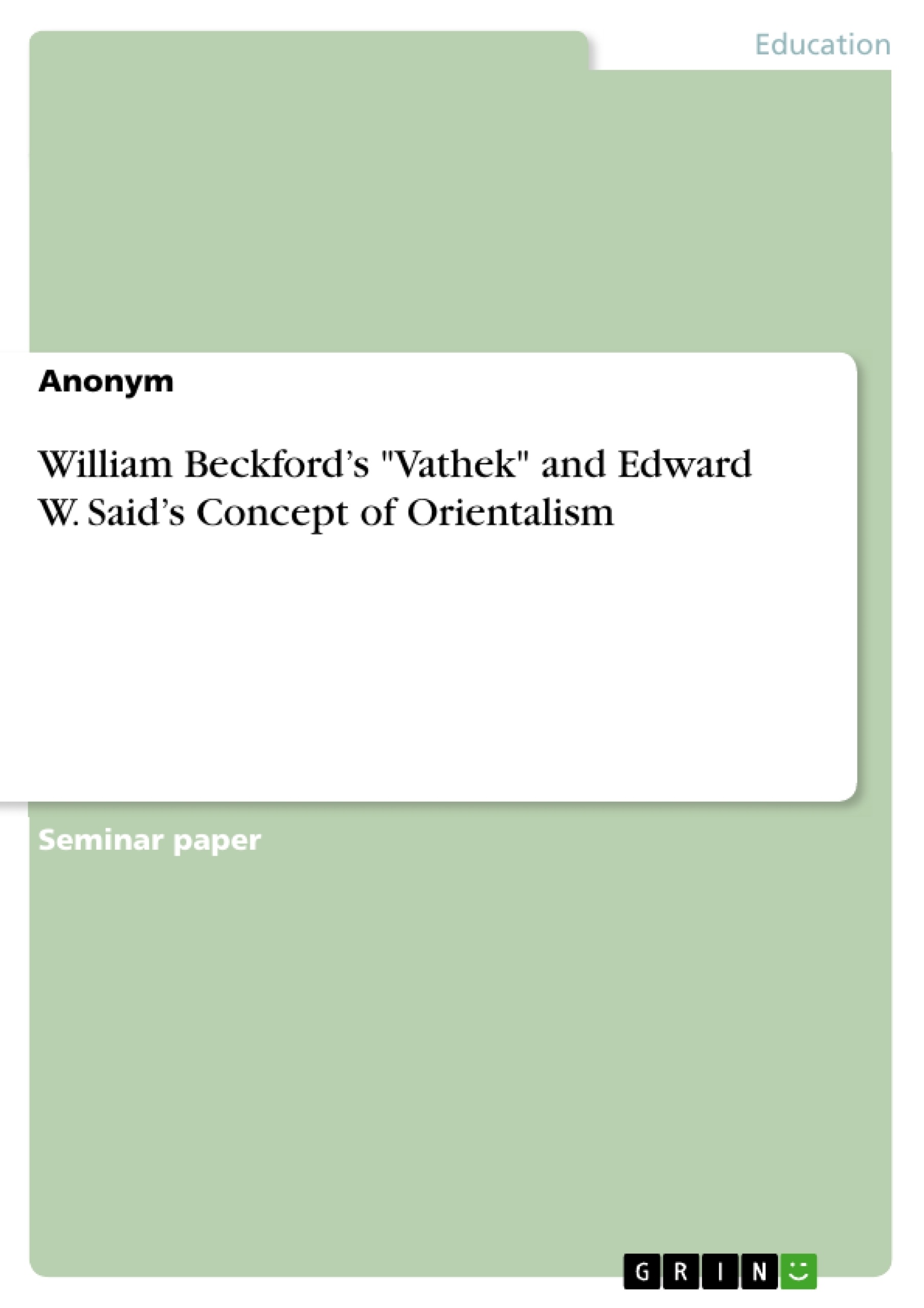The purpose of this present survey is to investigate features of Edward Said’s concept of Orientalism in William Beckford’s “Vathek”. It intends to examine how far Beckford’s novel reflects the standardization and cultural stereotyping that have helped to intensify the grasp of the imaginative demonology of the mysterious East (Said, 2003:26).
Therefore I will at first present an introduction of Said’s concept of Orientalism, in order to be able to distinguish features of Orientalism in Beckford’s novel in the main body of my term paper. The main focus will be on: Violence and evilness, homoeroticism, sensuality and religion.
The most important sources for my term paper are evidently Edward Said’s book “Orientalism”, which has been first published in 1978, and William Beckford’s novel “Vathek”(1786), which was originally written in French and translated into English by Reverent Samuel Henley (Khrisat, 2001: 192).
Even though many scholars seem to have studied Said’s notion of Orientalism in the scope of literary works, like for example Eric Meyer and Bernard Lewis, there seem to exist few researches which are merely based on Orientalism in “Vathek”. However, the most important resource for this paper is Muna Al-Alwana’s survey about Orientalism in Beckford’s novel, next to Jeffrey Cass’s study, who has investigated “Vathek” in respect to Orientalism and Homoeroticism. The most important resource for this paper is Muna Al-Alwana’s survey.
Inhaltsverzeichnis (Table of Contents)
- Introduction
- Edward Said’s concept of Orientalism
- Typical features of Orientalism in Vathek
- Violence and Evilness
- Homoeroticism
- Sensuality
- Religion
- Conclusion
Zielsetzung und Themenschwerpunkte (Objectives and Key Themes)
This seminar paper explores the presence of Edward Said's concept of Orientalism in William Beckford's novel Vathek. It examines how the novel reflects the stereotypical representations of the Orient and investigates the extent to which Vathek embodies these stereotypical characteristics.
- The construction of Orientalism as a colonialist discourse
- The portrayal of violence, evilness, and despotic rule in Vathek
- The exploration of homoeroticism and its connection to Orientalist imagery
- The depiction of sensuality and indulgence in the novel
- The representation of Islam and its impact on the narrative
Zusammenfassung der Kapitel (Chapter Summaries)
The introduction sets the stage for the analysis by presenting the paper's objective, which is to investigate the features of Edward Said's concept of Orientalism in William Beckford's Vathek. It provides a brief overview of Said's theory and the significance of Orientalist themes in the novel.
The second chapter delves into Edward Said's concept of Orientalism. It explains how Said challenged the Western understanding of the Orient, highlighting the colonialist underpinnings of this perception. This section explores how the Orient was stereotyped and constructed as a contrasting image to the West, emphasizing its alleged inferiority and otherness.
The third chapter examines the manifestation of Orientalist tropes in Vathek. It focuses on specific aspects like violence and evilness, homoeroticism, sensuality, and religion. The chapter analyzes how these themes contribute to the overall Orientalist representation of the novel, drawing parallels between Vathek's characters and the Orientalist stereotypes that Said identified.
Schlüsselwörter (Keywords)
The core keywords and themes of this work revolve around Orientalism, specifically its application to William Beckford's Vathek. Key terms include colonialism, cultural stereotypes, exoticism, violence, homoeroticism, sensuality, and the representation of Islam. The paper explores how these concepts shape the narrative and characters within the novel, offering a critical analysis of the historical and literary context of Orientalist discourse.
- Arbeit zitieren
- Anonym (Autor:in), 2014, William Beckford’s "Vathek" and Edward W. Said’s Concept of Orientalism, München, GRIN Verlag, https://www.grin.com/document/309332




